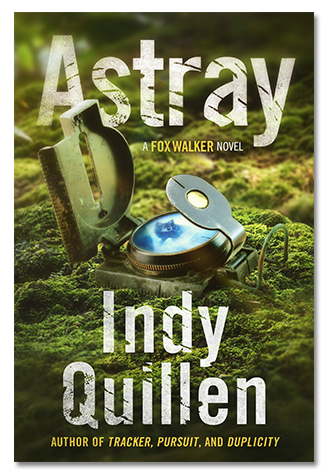If you’ve already read my blog Preparedness: Not Paranoia, you know that I talk a lot about the fact that being prepared used to simply be a way of life. No one thought of it as being paranoid. Today it’s sometimes referred to as Prepping or ‘Modern Homesteading’.
 The best way I know to describe this new movement is to say that most of us don’t believe in living in fear or paranoia. Those of us who thrive on being as self-reliant as possible, plan for whatever circumstances we can, and then we get on with life. Many of us are interested in learning some of the skills that our ancestors knew. But meanwhile we live as simply and comfortably as we can—while taking advantages of the modern conveniences that make sense. In other words, we don’t live in caves and dig up roots for food. Even if you live in the city you can incorporate many of the ideals for modern homesteading and being more self-reliant.
The best way I know to describe this new movement is to say that most of us don’t believe in living in fear or paranoia. Those of us who thrive on being as self-reliant as possible, plan for whatever circumstances we can, and then we get on with life. Many of us are interested in learning some of the skills that our ancestors knew. But meanwhile we live as simply and comfortably as we can—while taking advantages of the modern conveniences that make sense. In other words, we don’t live in caves and dig up roots for food. Even if you live in the city you can incorporate many of the ideals for modern homesteading and being more self-reliant.
I recently attended an informative presentation on the subject of: Why Prepare?
I liked the speaker’s common sense approach to this topic and enjoyed the frank, open conversations that followed. So much so, that I’ve decided to share some of the issues we discussed.
Today let’s look at the many reasons we may want to prepare.
 Of course, just one look at what half the country is experiencing right now; Epic heat waves in the summer that bring brown-outs or power grid outages, and then the winters arrive with the arctic blast record low temps and multiple snow storms, and gives us proof that weather can take its toll on us. Many people can’t get to work (loss of income), or can’t get to the store for supplies (food, water and prescriptions) and have discovered that getting medical attention is a challenge. Add to that the many who may be without power and have no heat or way to stay cool.
Of course, just one look at what half the country is experiencing right now; Epic heat waves in the summer that bring brown-outs or power grid outages, and then the winters arrive with the arctic blast record low temps and multiple snow storms, and gives us proof that weather can take its toll on us. Many people can’t get to work (loss of income), or can’t get to the store for supplies (food, water and prescriptions) and have discovered that getting medical attention is a challenge. Add to that the many who may be without power and have no heat or way to stay cool.
Although some parts of our country don’t experience winter storms, they do have their share of natural disasters to contend with. There are earthquakes, mud slides when they get too much rain, and of course those heart-stopping unpredictable fire storms.
Other parts of the country contend with other challenges; ranging from floods and landslides, to hurricanes and tsunamis, to drought. Mother Nature can keep us on our toes, for sure. So doesn’t it make sense to at least be prepared enough that you have an extra store of food and water on hand for one of these situations?
Natural disasters aside, what else could inspire us to prepare?
 Let’s look at our region and neighborhoods. What if there was a water main break that could take days to repair? Or what about a large-scale power outage, like we experienced here in San Diego County when we lived there? Our little corner store was sold out within the first chaotic hour. And if you didn’t have cash in hand you were out of luck. It may not be a life-threatening scenario, but wouldn’t you rather stay safely at home and know you had supplies to last you for a while? Wouldn’t you rather have your family be comfortable during that time?
Let’s look at our region and neighborhoods. What if there was a water main break that could take days to repair? Or what about a large-scale power outage, like we experienced here in San Diego County when we lived there? Our little corner store was sold out within the first chaotic hour. And if you didn’t have cash in hand you were out of luck. It may not be a life-threatening scenario, but wouldn’t you rather stay safely at home and know you had supplies to last you for a while? Wouldn’t you rather have your family be comfortable during that time?
Let’s take this one step further: barring natural disasters and man-made emergencies, what about a personal crisis? What if you suddenly became temporarily disabled and couldn’t work for a long period of time? What if you unexpectedly lost your job? Having a store of food, essential supplies and cash in reserve could prove invaluable and relieve a lot of stress until you had an income again.
I hope this inspires you to make an effort to start preparing, even in a small way, for possible emergencies. And then get on with life and hope you never need it.
Next week we’ll discuss the 6 excuses people make for not preparing and why they don’t hold true.


 Being outside in nature is the most basic part of who I am. Besides gaining knowledge about wildlife, I learn lessons about who I am, and surprise myself about what I am capable of achieving. Nature continually inspires me. It is a part of all my writings, no matter the genre or subject matter.
Being outside in nature is the most basic part of who I am. Besides gaining knowledge about wildlife, I learn lessons about who I am, and surprise myself about what I am capable of achieving. Nature continually inspires me. It is a part of all my writings, no matter the genre or subject matter. 






Good thoughts, for sure. So why am I not prepared for emergencies? Just distracted, I guess. And this coming from a guy who was evacuated during the Cedar Fire in 2003…
Thanks, Mike. I’ll be covering the excuses people use to not prepare….tune in! :0)
Start small, fellow Mike. Make sure you have three days of food, water and of course, an emergency radio (in full disclosure, I review them on my site). A good emergency radio is not expensive and will alert you to dangers even when the internet is down. It’s a lifeline to the external world when power is out.
Indy, can’t wait for you to talk about what the excuses for not preparing are! And if you ever want me to come on and blab about radios, I’d be happy to! (Apparently, I’m a big nerd about it.) 🙂
Great advice, Matt! And I’d love to have you guest blog about emergency radios. Please feel free to email me through my Contact page when you get a chance and let’s get it set up 😀